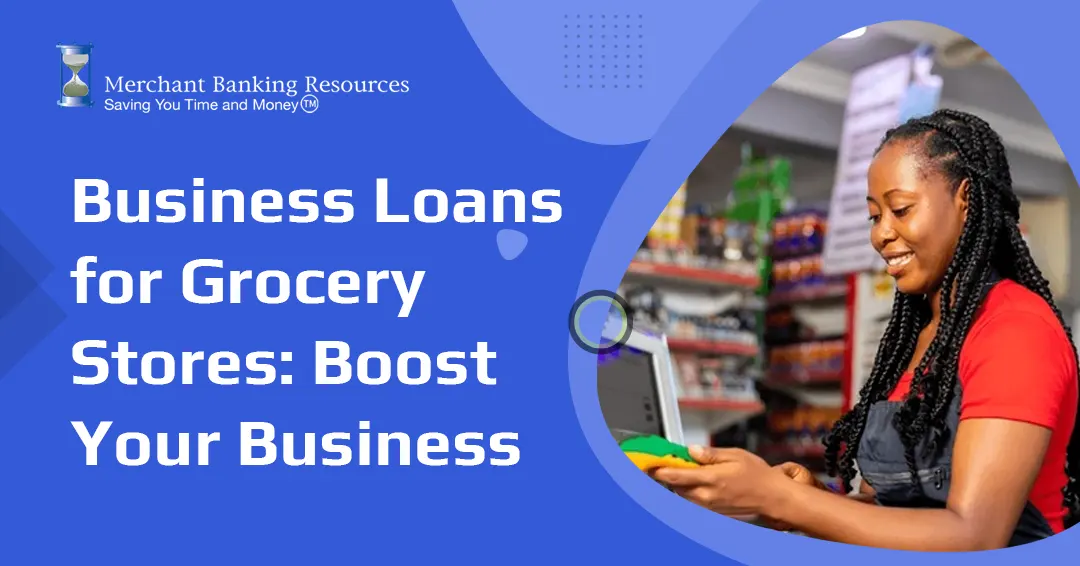Managing a grocery store means juggling multiple responsibilities—maintaining inventory, handling staff, managing suppliers, and meeting customer needs. In such a competitive market, access to reliable business loans for grocery stores can make a significant difference. With the right funding, grocery store owners can expand operations, improve efficiency, and maintain consistent cash flow even during slow seasons.
That’s where Merchant Banking Resources comes in. As a trusted provider of business financing, the company helps grocery store owners access reliable funding solutions designed to support expansion, manage operations, and overcome financial hurdles. With flexible loan options and fast approval times, it’s easier than ever to get the funds your business needs to move forward confidently.
Why Business Loans Matter for Grocery Stores?
A grocery store operates on thin profit margins. Even small disruptions—like delayed supplier payments or sudden repairs—can affect your daily operations. That’s where business loans come in handy. They provide financial stability, ensuring you can cover costs, restock shelves, or invest in new opportunities without worrying about cash flow issues.
Types of Business Loans for Grocery Stores (Feature Rich Snippet)
Let’s explore some common types of loans available for grocery store businesses:
1. Working Capital Loans
A working capital loanhelps you manage day-to-day expenses like payroll, rent, or inventory purchases.
2. Short-Term Loans
Short-term loansare designed for quick funding needs. These loans are usually repaid within 6 to 18 months, and you can handle your expenses effectively.
3. Long-Term Loans
Long-term loansare best for big investments—like expanding your store or purchasing large equipment.
4. SBA Loans
SBA loansoffer government-backed financing with lower interest rates and flexible terms.
5. Commercial Real Estate Loans
If you plan to buy or renovate your grocery store property, a commercial real estate loanis the right option.
6. Equipment Financing
Need new refrigerators, shelving, or POS systems? Equipment financinghelps you purchase or lease essential store equipment without using your entire cash reserve.
7. Merchant Cash Advance
A merchant cash advance (MCA) gives you a lump sum upfront, which you repay through a percentage of your daily credit card sales.
How to Choose the Right Loan for Your Grocery Store?
Here’s a simple step-by-step guide to help you choose:
- Assess Your Needs: Determine whether you need funds for short-term expenses or long-term growth.
- Check Eligibility: Review credit requirements and financial documentation before applying.
- Compare Loan Options: Look at interest rates, repayment terms, and flexibility.
- Calculate Repayment Ability: Make sure your business can handle monthly payments comfortably.
- Apply with Confidence: Platforms like Merchant Banking Resources simplify the application process with quick approvals and personalized loan options.
Why Choose Merchant Banking Resources?
Merchant Banking Resources understands the unique financial needs of grocery store owners. With fast approvals, flexible repayment terms, and access to multiple loan types, the company helps businesses grow without financial stress. Their goal is to provide fast business loans and customized funding solutions that keep your operations running smoothly.
Final Thoughts
Access to the right financing can make all the difference for your grocery store’s growth and stability. Whether you need business loans for grocery stores, working capital loans, or fast business loans, choosing the right partner—like Merchant Banking Resources—ensures your business gets the financial boost it deserves. Apply Now!
FAQs:
1. What can I use a grocery store business loan for?
You can use it for inventory, renovations, equipment, payroll, marketing, or cash flow management.
2. What credit score do I need to qualify?
Most lenders prefer a credit score of 600 or higher, but some programs accept lower scores with strong business performance.
3. How fast can I get approved?
Approval times vary, but with fast business loans, you can receive funds within 24–48 hours.
4. Are working capital loans good for small grocery stores?
Yes, working capital loans are perfect for small stores that need short-term funding for daily operations.
5. Can I get a loan if I have bad credit?
Yes, some lenders offer options based on your business revenue instead of credit score.
6. What’s the difference between SBA and traditional loans?
SBA loans are government-backed and have lower interest rates, while traditional loans may have faster processing times.
7. Is collateral required for all loans?
Not always. Many short-term or working capital loans are unsecured.
8. Can I refinance my existing grocery store loan?
Yes, refinancing can help you get better interest rates or repayment terms.
9. Can I use a loan to buy another grocery location?
Yes, commercial real estate or SBA loans are ideal for purchasing or expanding store locations.
10. How can Merchant Banking Resources help me?
They connect you with lenders offering customized grocery store financing—helping you secure the right funding quickly.
Tags: Business Loans For Grocery Stores, Grocery Store Financing, Small Business Loans, Working Capital Loans, Fast Business Loans, SBA Loans, Commercial Real Estate Loans, Merchant Banking Resources, Business Funding .Retail Business Loans, Grocery Business Growth, Business Expansion, Entrepreneur Funding, Small Business Support, Cash Flow Solutions, Startup Funding, Equipment Financing, Loan For Small Business, Grow Your Business, Financial Success

